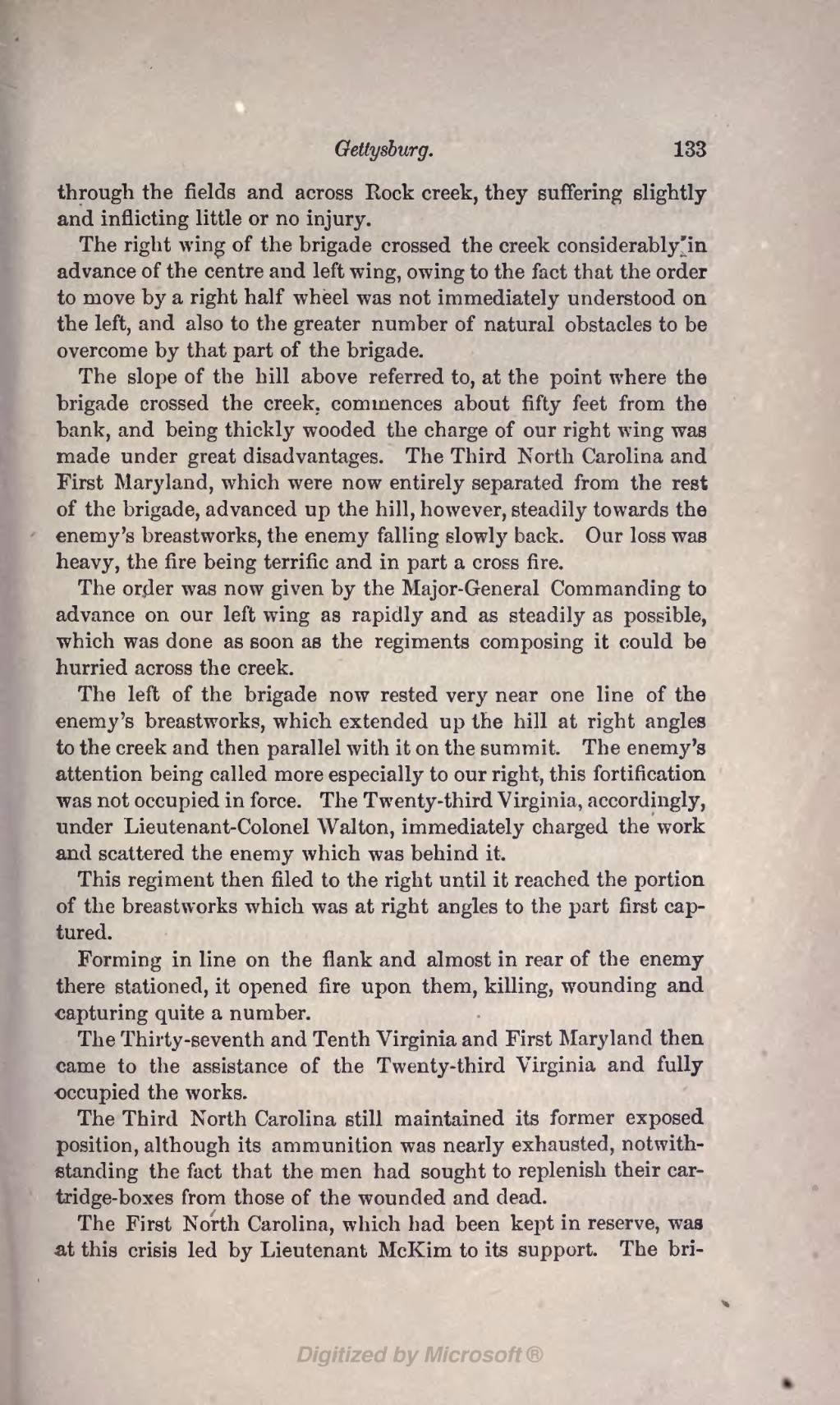through the fields and across Rock creek, they suffering slightly and inflicting little or no injury.
The right wing of the brigade crossed the creek considerably in advance of the centre and left wing, owing to the fact that the order to move by a right half wheel was not immediately understood on the left, and also to the greater number of natural obstacles to be overcome by that part of the brigade.
The slope of the hill above referred to, at the point where the brigade crossed the creek, commences about fifty feet from the bank, and being thickly wooded the charge of our right wing was made under great disadvantages. The Third North Carolina and First Maryland, which were now entirely separated from the rest of the brigade, advanced up the hill, however, steadily towards the enemy's breastworks, the enemy falling slowly back. Our loss was heavy, the fire being terrific and in part a cross fire.
The order was now given by the Major-General Commanding to advance on our left wing as rapidly and as steadily as possible, which was done as soon as the regiments composing it could be hurried across the creek.
The left of the brigade now rested very near one line of the enemy's breastworks, which extended up the hill at right angles to the creek and then parallel with it on the summit. The enemy's attention being called more especially to our right, this fortification was not occupied in force. The Twenty-third Virginia, accordingly, under Lieutenant-Colonel Walton, immediately charged the work and scattered the enemy which was behind it.
This regiment then filed to the right until it reached the portion of the breastworks which was at right angles to the part first captured.
Forming in line on the flank and almost in rear of the enemy there stationed, it opened fire upon them, killing, wounding and capturing quite a number.
The Thirty-seventh and Tenth Virginia and First Maryland then came to the assistance of the Twenty-third Virginia and fully occupied the works.
The Third North Carolina still maintained its former exposed position, although its ammunition was nearly exhausted, notwithstanding the fact that the men had sought to replenish their cartridge-boxes from those of the wounded and dead.
The First North Carolina, which had been kept in reserve, was at this crisis led by Lieutenant McKim to its support. The bri-
